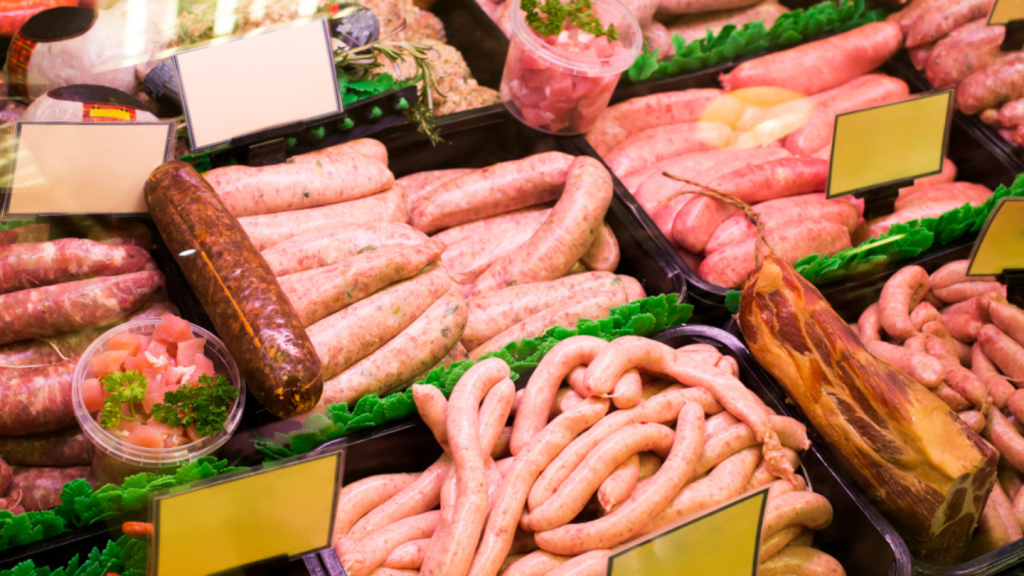Since Brazilian nutritionist Carlos Monteiro coined the term ultra-processed foods (UPF) in 2009 as the most processed category in the Nova classification system, research and campaigning have increasingly focused on health impacts that might be intrinsic to ultra-processed foods as a category even before nutritional content is taken into account.
The fact the Monteiro definition of ultra-processing includes criteria outside the actual manufacturing stage, such as the marketing budgets behind the foods, the scale of the companies making them and their profits, speaks to the inherently political and cultural elements within the UPF agenda.
That has not prevented – and indeed may have fostered – a proliferation of research purportedly supporting the case against UPFs, accompanied by increasingly vociferous campaigning. This has in turn begun to influence how public policy and health advice are being framed.
The response from major food manufacturers to the increasingly hostile public debate around UPFs has been to say as little as possible, realising they will effectively be facing a “When did you stop beating your wife?” question. Defeating the contention that all UPFs are inherently bad for us is fairly straightforward but hard to do without conceding that some are.
However, the hostility towards UPFs will soon leave food manufacturers no choice but to address the clamour head-on.
The International Food and Beverage Alliance (IFBA), through which eight multinational food and beverage manufacturers bolster their nutritional and environmental standards and engage with external stakeholders on health and sustainability issues, has decided the time has come to speak up.
In his first interview on the organisation’s change in tack, IFBA secretary general Rocco Renaldi spoke with Just Food about the challenges an overly simplistic demonisation of processed foods creates for food manufacturers, how he believes this could undermine the role companies are playing in building a sustainable food system and how IFBA intends to engage in the UPF debate.
Just Food: Since the creation of the Nova classification of food processing in 2009, the contention ultra-processed foods (UPF) are intrinsically linked to negative health impacts has gained stronger traction among researchers, campaigners and, latterly, policymakers. The food industry’s response to date has been muted. Why has IFBA decided it is time to engage more actively in the debate?
Rocco Renaldi: We thought that we should put out some basic information from our perspective about food processing and the role of processed foods in creating a more sustainable food system. The first is food safety, food processing, in its most basic forms: be it drying, salting, cooking. The fundamental purpose of that since inception is food safety. And, today, processed food in many situations is the only safe food around the world. So, there’s that basic fundamental dimension in this – food security in its broadest sense. Processed food provides critically affordable nutrition in a ubiquitous manner. And the last dimension is environmental.
Just Food: How will the IFBA be communicating its more positive narrative around processed foods?
Renaldi: We launched a new website on 1 February. It's called Processed with Purpose and that contains our basic narrative. It also includes a simple video that talks about how processing works and why we need food processing. It’s sort of the basic education piece. We did a soft launch. We sent a note to our followers and stakeholders. We did a bit of social media work around it. That’s it.
It’s a repository of basic information about that and also what the companies are doing, in terms of moving towards an increasingly sustainable food system.
And, from there, we are simply increasingly going to talk about it, to have the voice of industry heard, and that’s going to be a nuanced, pragmatic voice. The core message is don’t overlook the critical role of food processors in the food system.

Just Food: In your view, are the researchers and campaigners advocating for a world without ultra-processed foods overlooking the need to feed a growing global population efficiently and that ultra-processed foods have a part to play in an efficient global food system?
Renaldi: I think some voices are overlooking that. Others are more nuanced and effectively say ‘yeah, we know we know that people will not just move away from these products and even need these products.’ So it depends on who you’re listening to. But it’s true that the debate is quite polarised as these things often get and the nuance does tend to get lost.
Just Food: Ultra-processed foods seem to be a definition that goes beyond the manufacturing process, relating to the types of companies that produce them, how they are marketed and the profitability of their manufacturers. References to the mass commercialisation of the foods and the business models of manufacturers feature prominently in the debate. Does this make the UPF agenda as much a political and policy debate as a technical one?
Renaldi: That definition comes out of the Nova classification. It includes that language. The paper that is being used as the standard scientific underpinning of the classification says processes and ingredients used for the manufacture of ultra-processed foods are designed to create hyper-palatable, highly profitable products, owned by transnational corporations using pervasive advertising and promotion. That effectively political approach is enshrined in the Nova definition so I'm not surprised that it's being relayed.
Just Food: To what extent will the main thrust and tone of the IFBA’s engagement in the debate counter the narrative that appears to define the business model of food manufacturers as part of the problem?
Renaldi: There are a couple of elements there. The first is that we'd like to speak up a little more and we will start doing that because we think it's important to take care in drawing sweeping conclusions from scientific evidence which doesn't fully support them. Related to that, we also need to be open to science. If we're going to remain science-based, that cuts both ways. So, if there is new conclusive evidence that shows that a certain type of food processing or an enzyme or an additive or whatever it is, has undesirable consequences then that should be looked at.
We shouldn’t start underpinning policy decisions by an evidence base that is inconclusive at best and fundamentally flawed at worst.
But we shouldn’t start underpinning policy decisions by an evidence base that is inconclusive at best and fundamentally flawed at worst, and we're seeing that happening already around the world. There are now dietary guidelines in Canada and France in Brazil that basically say [to] avoid UPFs, where the definition isn't clear, the rationale isn't supported.
Then that leads into the second pillar. We need to speak up for our role in the food system. We have made enormous progress in feeding humanity. In fact, today's food system has enabled the growth of the population that we have today. It has underpinned urbanisation and the evolution of our current societies. It doesn't mean that this food system doesn't need work and doesn't need change. But to say that food processing is the problem is naive and dangerous.
Just Food: How concerned are you that policymakers are being influenced by the UPF agenda?
Renaldi: I think politics is always vulnerable to too simplistic solutions, right? This is a good case in point in the sense that you've got a highly complex set of problems. It's about the sustainability of the food system and all its dimensions including health and nutrition, the environmental and the socio-economic dimensions.
I work day in and day out on the sustainable food systems agenda. And, if I look at it from that angle, I am concerned about reductionist, simplistic, quick fixes that will at best distract from what's needed and at worst have adverse consequences.
Just Food: The IFBA claims its members have a record of continuous improvement through incremental changes to product formulation or marketing practices. To what extent does the UPF debate threaten to undermine further continuous improvement?
Renaldi: Major food companies have been doing a lot of work in the last 15 years or so on product innovation, on reformulation, on standards for responsible marketing, better consumer information and so on, which has been a response in part to the legitimate point from policymakers, NGOs and so on, that we had an obesity crisis which has transformed into a non-communicable diseases problem. Everyone has a responsibility in that and food manufacturers have a 15-year track record of continuous improvement.
We also need to be open to science. If we’re going to remain science-based, that cuts both ways
Along comes the Nova classification and the UPF agenda. It's a different agenda altogether, which, to boil it down to its simplest form, basically says 'it's not so much about what nutrients a food contains. It's about how, to what extent, the food is processed.' So, the agenda here is ultra-processed food is the problem. It is difficult to see how that can push us along that road of continuous improvement.
Just Food: To many consumers, both sides of this argument will seem convincing. Where would you advise consumers to turn to for a perspective on the question that comes neither from industry nor NGOs?
Renaldi: for the time being, I would really highlight the conclusions of the UK Scientific Advisory Committee on Nutrition [report], which was done at the request of government and it's, I think, eminently sensible.
To date, the overwhelming evidence is observational. It's not proving causal correlation but also isn't necessarily accounting for confounding factors, such as variables, socioeconomic status, smoking or other behaviours, BMI and so on and so forth.
It goes back to the principle of being science-based. And so it's the job of scientific endeavour to find out if there is a genuine problem with a product or ingredient or additive x, y or z. But it has to be at that level. It has to be at the level of x, y and z not at the blanket level
Just Food: The IFBA comprises eight significant companies. Do you believe manufacturers that aren’t members of the alliance will be supportive of your higher profile in the debate and that the alliance will be representing its members and industry on a broader level as well?
Renaldi: I can't speak for non-member companies, obviously, so we'll speak for our members. But I do think that what we're saying will resonate with different actors along the food chain, and manufacturers whether they're big or small.
















